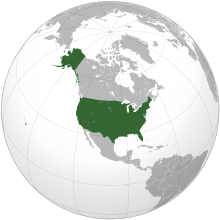American Muslims Claim Their Place In Global Islam
By CGNews
By Farha Tahir
Twenty years ago, if you had asked American Muslims where they were from, many would probably have responded with the name of a far-off country, one they may have visited once. Now, it’s more likely that you’ll hear the names of American states as diverse as Idaho, Wisconsin, California and New York.
The relationship many American Muslims once had with their American identity has transformed, and they have integrated their unique brand of American Islam with their place in the global Muslim community. This process has created a community whose identity is simultaneously forged by the histories of Muslim dynasties and American revolutionaries.

This phenomenon can be largely attributed to a cohort of American Muslim scholars who have committed themselves to creating a distinct American Muslim identity within the religion’s universal ideals.
Dr Umar Faruq Abd Allah calls this concept “reflect(ing) the bedrock“. It forces Muslims to assess critically what Islam means in an American context, to move religion beyond the routine and conventional to a thoughtful, deliberate practice that fits their unique realities.
While derived from historic, time-tested principles, religion is not static, nor is religious practice. It changes based on its time, context and followers. Communities, like individuals, evolve with their changing realities, responding to events that force them to confront the fundamentals of their belief system.
One such event was 9/11.
While the tragedy of that day fundamentally changed our country, it also profoundly changed American Islam. The event not only forced reflection on the part of American Muslims, but the realisation that they had to carve out a place in the American social fabric.
In the ten-plus years since 9/11, American Islam has come of age under the guidance of a new group of scholars, who are classically trained in the Islamic tradition and have studied in mainstream universities. They not only have the credibility of being born and raised in the United States (and having a street-savvy American identity), but also a unique ability to quote Qur’anic passages in fluent Arabic and contextualise them within historic and contemporary realities.
These scholars often speak to audiences of thousands of people, seamlessly integrating discussions of American Muslims’ contemporary struggles with those of early Muslims. They have created organisations and institutes that address the unique challenges facing American Muslims, whether integrating religious practice with work-life balance, feeling the pressure of “representing” mainstream Islam, or being expected to respond to violent attacks carried out in the name of Islam.
One such organisation is the American Learning Institute for Muslims (ALIM), which seeks, in the words of its vision and mission statement, to “[empower] Muslims through Islamic literacy” and “facilitat[e] dialogue between the textual and historical traditions of Islam and the sociopolitical, cultural and intellectual realities informing the lives of American Muslims.” There are other similar organisations and each one offers a distinct ideological perspective, while responding to the need for an authentic institution specific to the experiences of American Muslims.
But many American Muslim scholars have also been influenced by time studying abroad, finding their way to North and West Africa and the Middle East to learn Arabic and traditional Islamic sciences under scholars in Senegal, Mauritania, Morocco, Saudi Arabia and Egypt. They translate classical Islamic texts and analysis from historic jurists and scholars to make them accessible to a wider audience. And they lead travel groups to encourage international dialogue and exchange among Muslims around the world.
Their ability to understand life in America makes them a uniquely placed source for American Muslims, but their mastery of Islamic history and legal thought make them a resource for Muslims around the world. Traveling internationally, one finds that Sherman Jackson, Zaid Shakir, Suhaib Webb and other American Muslim leaders are household names in countries as far away as China and India, and as close to home as Canada and Mexico. Their relevance to diverse audiences offers a versatility that situates American Islam in the broader Muslim community.
Whether based in rural America or a major world metropolis, these scholars are shaping the way Muslims around the world think about contemporary Islam. They provide relevance to Islamic practice for a new generation of Muslims growing up not only in Muslim-majority countries, but also those living as religious minorities. From their analyses of complex Islamic sciences to their participation in political life, they serve as bridges between traditional Islamic values and the modern Muslim.
Farha Tahir has previously served in various capacities with both the American Learning Institute for Muslims (ALIM) and the Muslim Students Association of the United States and Canada (MSA National).
